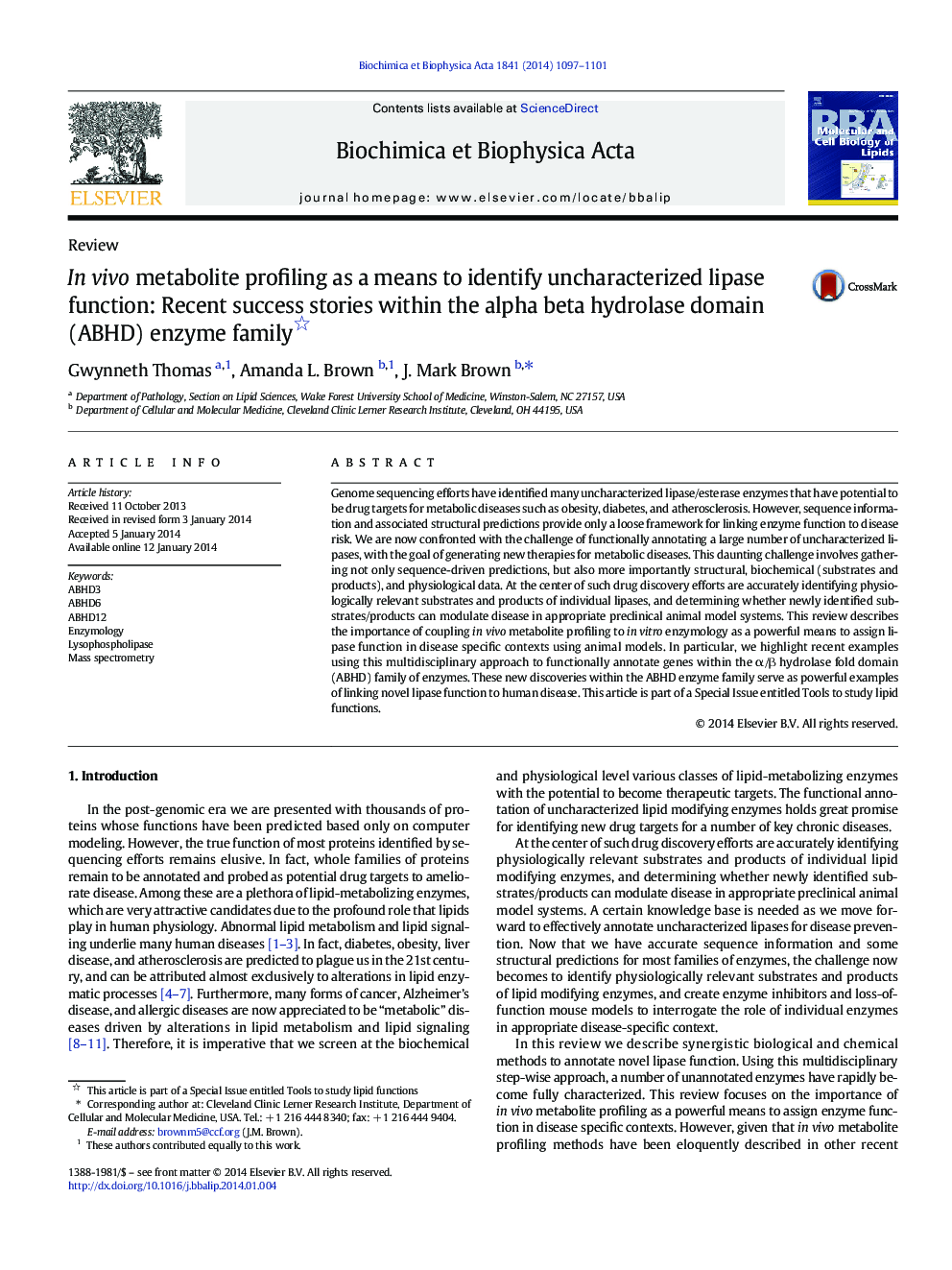| Article ID | Journal | Published Year | Pages | File Type |
|---|---|---|---|---|
| 1949168 | Biochimica et Biophysica Acta (BBA) - Molecular and Cell Biology of Lipids | 2014 | 5 Pages |
•Uncharacterized lipases have potential to be drug targets for metabolic diseases.•In vivo metabolite profiling studies are key to functionally annotate new lipases.•Recent annotation of α/β-hydrolase domain (ABHD) provides a methodological framework.
Genome sequencing efforts have identified many uncharacterized lipase/esterase enzymes that have potential to be drug targets for metabolic diseases such as obesity, diabetes, and atherosclerosis. However, sequence information and associated structural predictions provide only a loose framework for linking enzyme function to disease risk. We are now confronted with the challenge of functionally annotating a large number of uncharacterized lipases, with the goal of generating new therapies for metabolic diseases. This daunting challenge involves gathering not only sequence-driven predictions, but also more importantly structural, biochemical (substrates and products), and physiological data. At the center of such drug discovery efforts are accurately identifying physiologically relevant substrates and products of individual lipases, and determining whether newly identified substrates/products can modulate disease in appropriate preclinical animal model systems. This review describes the importance of coupling in vivo metabolite profiling to in vitro enzymology as a powerful means to assign lipase function in disease specific contexts using animal models. In particular, we highlight recent examples using this multidisciplinary approach to functionally annotate genes within the α/β hydrolase fold domain (ABHD) family of enzymes. These new discoveries within the ABHD enzyme family serve as powerful examples of linking novel lipase function to human disease. This article is part of a Special Issue entitled Tools to study lipid functions.
